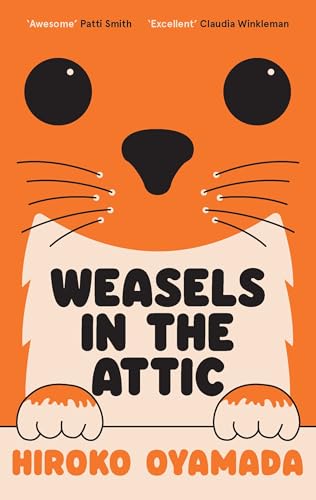Hiroko Oyamada "Weasels In The Attic" (Granta)

It's easy to dismiss this book if one is unaware of social pressures, societal change, and a rapidly aging population in Japan (and most of East Asia).
The heart of this brief collection of interrelated short stories is about childbirth -- the social pressure to have children, the changes in society (particularly with young adults) that diminish the desire for children, and the changes brought by having a child -- but the story is told obliquely. In some ways, each story is a small slice of life told as if a fable. It would be difficult to give a plot summary for each story or for the overarching story without telling the whole story. Suffice it to say that the fish in the first story and the weasels in the second are real, but also serve as metaphors for childbirth and childrearing. I enjoy Oyamada's surreal writing, but if your expectations are for a strong plot or character development, look elsewhere.

It's easy to dismiss this book if one is unaware of social pressures, societal change, and a rapidly aging population in Japan (and most of East Asia).
The heart of this brief collection of interrelated short stories is about childbirth -- the social pressure to have children, the changes in society (particularly with young adults) that diminish the desire for children, and the changes brought by having a child -- but the story is told obliquely. In some ways, each story is a small slice of life told as if a fable. It would be difficult to give a plot summary for each story or for the overarching story without telling the whole story. Suffice it to say that the fish in the first story and the weasels in the second are real, but also serve as metaphors for childbirth and childrearing. I enjoy Oyamada's surreal writing, but if your expectations are for a strong plot or character development, look elsewhere.
